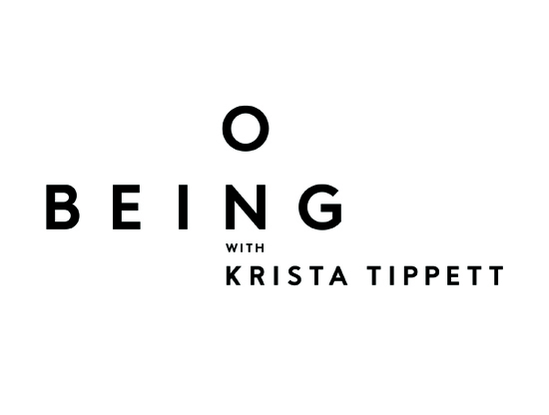More on Journalism in the Age of Trump
(Be warned, I get a little bit fired up in this one—unintended, but whatever, it happened.)
The other day, a splendid farce played out on national television, one that illuminated and united what I consider to be some of the most repugnant segments of American life:
- A loathsome representative (Stephen Miller) of America's most toxic presidency in history was invited to join the set of...
- A news outlet (CNN) that was complicit in creating the celebrity that is Donald Trump, strongly fomented his electability, continues to turn every single tweet of his into the most fraudulent kind of "breaking news," and is now in the midst of an almost tragicomically absurd "Facts First" campaign (which can basically be reduced to the notion that—incredible as it may seem for a news outlet to proclaim—facts should undergird reporting)...
- To defend the abhorrent administration against a book whose publication date was moved up so as to more quickly peddle a gossipy, second-hand, is-it-true-or-isn't-it-true, TMZ-style account of the inner workings of Trump's White House...
- The conversation—if you can call the verbal equivalent of putting America's intellectual car in reverse and pounding the gas pedal a "conversation"—then led to a wonderful amount of tweeting and retweeting and echo-chambering and trending and up-in-arms "can you believe what [Tapper said to Miller/Miller said to Tapper]" polarizing indignities...
- And yet again—with his demonstrated approach to knowing how to completely control the attention of (and guide the direction of) the television media in a nearly unprecedented way—it's hard for me to see how anybody but Trump, his base, and the extreme wing of his party come out on top (as in, this cogent Atlantic recap, which finishes: "But failing to understand the way Miller’s contretemps with Tapper appeals to a certain swath of the electorate is failing to understand how Trump gathered support in the first place.").
As one would expect, when ratings and theater lie at the intersection of television news and politics, nothing remotely close to substantive was discussed. The guest spoke over the host who spoke over the guest who offended the host who bristled at the guest who kept trumpeting his gibberish at the host who sprinted for the moral high ground and cut his microphone to the applause of people on both sides: progressives claimed it (as they did at the end of each Hillary/Trump debate, when facts, also, supposedly mattered) a definitive victory—the case-in-point of brilliant and responsible journalism shutting off the sewage valve that is any Trump White House spokesperson—and Jake Tapper the quintessentially backboned news anchor. Trump's base claimed it (as they did at the end of each Hillary/Trump debate, when facts, also, supposedly mattered) a definitive victory—the case-in-point of a liberal, biased media yet again trying to silence their opposition—and Stephen Miller the quintessentially backboned representative of an ignored, over-regulated, and forgotten America, perpetually under-attack by the mainstream media. So it has gone, so it will go, each side feasting off the other, getting nobody anywhere.
I find it hard to see how any of this is an advancement of any kind. It's certainly not quality, honest, or—perhaps my favorite casually-deployed descriptor when it comes to contemporary journalism—"brave." I think it repulsive, actually, and perhaps the only thing to glean is something about how fascinating it is to dress self-important people in suits, separate them by a desk, give them each a microphone, an audience, some sort of social media presence, and the sense that if they gesticulate enough and speak in an affected way or sound adamant and say things like "respectfully, sir" or "this is my show," and watch it add up to absolutely nothing in the way of meaningfully addressing gun violence, or monitoring PAC spending on electoral contributions, or detangling the centuries of entrenched racism from its crippling effects on school districts and neighborhoods and mindsets of people who still believe that yes, because of what I have seen on television, Barack Obama sure is a Muslim terrorist. In other words, in the entire spectrum of topics that could have maybe been remotely close to beneficial to explore, these two men—both, to me, emblematic of a great deal wrong with each of their professions—decided to touch on roughly zero of them.
The good news is that in some ways, and to the extent that anybody even does, we all may benefit from the short-attention-spanned ravenously hungry 24-hour news cycle. Less than a day later—with more than half of Puerto Ricans still without power (months after the fashionable assignment appeared to land reporter after reporter in rain gear standing bravely for a few instagrammable days in any destination set to endure a rain storm) and on a day that saw the elimination of roughly 200,000 residency permits for migrant Salvadorans—the naturally prioritized story-center for credible journalism was in Atlanta: there was a big football game to play (cue national anthem stories), and—and—for the first time ever, there was a halftime show.
(Okok. Before this comes across as TOO crotchety, some obvious caveats: all reportable stories do not have to be humanitarian disasters, nor is it a failure of journalism to report on football games—not at all. More, this is certainly not to argue that the national championship isn't a story—it is, as are a number of others I didn't list—it's just that good LORD, let us please not mask this as journalism. Doing so does an immense disservice to the legacy of what journalism was, and, in some wonderful newspapers around the country, still very much is. It boils to this: the disgusting marriage of modern politics with the modern media, and the personalities involved on both sides, is a symbiosis that offends every single sensibility I have towards integrity—two institutions supposed to act in the greater service of its people, failing massively, time and time again, on national levels, each perpetually blaming the other. Dramatically rich, morally squalid. I'd have to put this dynamic somewhere beneath systemic racism and its effects, and gender inequality and its effects, on my wait wait waitttttt is this SERIOUS list.)
ANYWAY, THIS PODCAST. (Well well. That sentence took a moment longer than I thought it would to write.) Preet is a big-brained man, and thank goodness for Maggie's writing (and, honestly, a large number of print journalists). In an era where journalism is hour-by-hour being redefined for the worse, there's an old guard of print mainstays that provide exceptional, reliable, thorough reporting that matters more with each passing day. It's reassuring to hear an important issue dissected sensibly and thoughtfully, and it's the reason that I'm sharing it here—probably prefaced too heavily by a grumbly rant.








